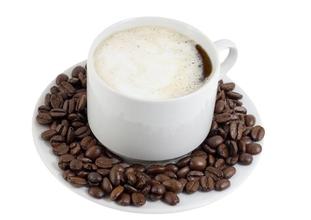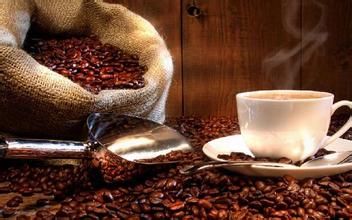Coffee beans Hawaiian Kona Coffee The latest coffee introduction
Kona Coffee is a rich and sour coffee bean, grown in a unique climate that creates the perfect flavor of Kona Hawaii: Hawaiian beach, monsoon and volcanic.
Hawaii Kona coffee beans are the most beautiful coffee beans in the world. They are unusually full and shiny. Kona coffee beans are evenly shaped, with intense acidity and sweetness. They taste moist and smooth. Growing on a volcano, Hawaii's unique volcanic climate creates Kona coffee's unique aroma, and there is a high density of artificial cultivation, so each bean can be said to be spoiled "ladylike", beautiful, plump and baby-like skin.
Kona coffee tastes fresh, crisp, medium-bodied, slightly sour, with a rich aroma and a long finish. Best of all, Kona coffee has a blend of wine, fruit and spice aromas that are as charming as the colorful hues of this volcanic archipelago. The taste of Kona coffee generally falls into the milder category, so that some people think this mildness is synonymous with bland, and Kona is too refreshing and simple. But if you're one of those people who wants to get into the mood with the aroma of coffee before you taste it, Kona is the coffee for you, because it's not as mellow as Indonesian coffee, not as strong as African coffee, not as rough as Central and South American coffee. Kona coffee is like a girl walking in the Hawaiian sun and breeze, fresh and natural, not warm.
In Hawaii, you can watch the blazing sunset sink into the red-orange sea, feel the fresh, flowery air, and sit on the beach with a cup of Kona coffee. I'm afraid there's no place in the world that can offer you such enjoyment.
Hawaii's earliest settlers arrived in 300 - 400 AD, and historians speculate that they came from the Marquesas Islands. The people lived on the island in separate tribes led by hereditary chiefs. The earliest Hawaiian inhabitants created Hawaii's rich musical culture, although not much writing survives.
The Europeans discovered Hawaii by accident. They were originally looking for a legendary passage to the east to produce spices, but instead they found the richest pearl in the Pacific Ocean. A captain named James Cook landed at Kauai in 1778 to supply his ships. He encountered severe cold and storms on his way back, and had to return to Hawaii early the following year and anchor on a beach in Kona. Since then, the Hawaiian Islands have become important stopovers on the world trade routes. Hawaii's chiefs traded sandalwood, a native of the island, for weapons, goods and livestock with passing ships. From the 1820s, Western religion began to spread widely on the island, and many churches built in that era are still in use today.
Hawaii tourism is developed, visitors can visit coffee farms, see or hands-on coffee harvest, coffee beans processing, roasting and grinding and other processes, and make a cup of coffee that really belongs to themselves. There are about 600 independent coffee farms in the Kona area, most of which are small family farms, usually between 18 and 42 acres. Kona coffee can bring in more than $10 million a year to these coffee farms.
Kona coffee has always been grown using the family farming model. At first, only men were allowed to work in the coffee garden, but later women joined in. Hawaiian family production was more dependent on family effort than on hiring workers, so it was normal for Hawaiian families to have eight or nine children. Since then, new immigrants from the Philippines, the United States and Europe have come to Hawaii to engage in coffee farming. Over time, Hawaii has formed a social atmosphere centered on family culture and easy to absorb foreign culture, which has become a major feature of Hawaii.
Hawaii is also a paradise for coffee tasting and buying. Each island has several unique places for tourists and locals to taste and buy coffee, ranging from cozy shops to comprehensive coffee knowledge centers. In Hawaii, you can watch the blazing sunset sink into the red-orange sea, feel the fresh, flowery air, and sit on the beach with a cup of coffee. I'm afraid there's no place in the world that can offer you such enjoyment.

Important Notice :
前街咖啡 FrontStreet Coffee has moved to new addredd:
FrontStreet Coffee Address: 315,Donghua East Road,GuangZhou
Tel:020 38364473
- Prev

Boutique coffee beans Colombian coffee the latest coffee introduction and information
Colombian coffee (Cafe de Colombia), which originated in Colombia, is one of the few individual coffees sold in the world under the name of the country. In terms of quality, it has won praise unmatched by other coffee. Compared with other producing countries, Colombia is more concerned with developing products and promoting production. It is this, coupled with its superior geographical and climatic conditions, that makes Goran
- Next

Boutique coffee beans Costa Rican coffee the latest introduction has a unique flavor
Costa Rican coffee is produced in the Republic of Costa Rica (The Republic of Costa Rica) in the south of Central America. Its quality is similar to that of Colombian coffee and is suitable for blending mixed coffee. The coffee beans produced at the high latitudes of Costa Rica are famous in the world, full-bodied, mild in taste, but extremely sour. The coffee beans here are carefully processed, precisely because
Related
- Detailed explanation of Jadeite planting Land in Panamanian Jadeite Manor introduction to the grading system of Jadeite competitive bidding, Red bid, Green bid and Rose Summer
- Story of Coffee planting in Brenka region of Costa Rica Stonehenge Manor anaerobic heavy honey treatment of flavor mouth
- What's on the barrel of Blue Mountain Coffee beans?
- Can American coffee also pull flowers? How to use hot American style to pull out a good-looking pattern?
- Can you make a cold extract with coffee beans? What is the right proportion for cold-extracted coffee formula?
- Indonesian PWN Gold Mandrine Coffee Origin Features Flavor How to Chong? Mandolin coffee is American.
- A brief introduction to the flavor characteristics of Brazilian yellow bourbon coffee beans
- What is the effect of different water quality on the flavor of cold-extracted coffee? What kind of water is best for brewing coffee?
- Why do you think of Rose Summer whenever you mention Panamanian coffee?
- Introduction to the characteristics of authentic blue mountain coffee bean producing areas? What is the CIB Coffee Authority in Jamaica?

